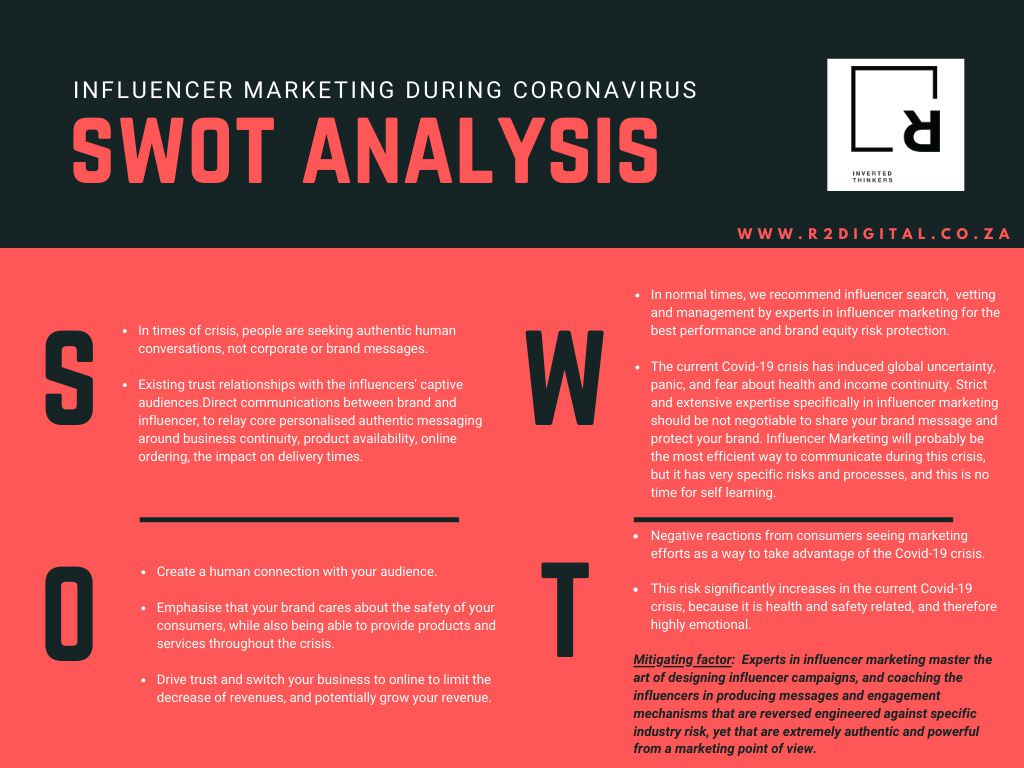According to R-Squared, some things will change due to crisis management during Coronavirus, but the following guidelines are nevertheless true at all times.
Strategies: ensure that your dedicated influencer marketing strategic direction is aligned with the external circumstances, e.g. online buying in a time of real-life isolation (buying from the safe comfort of your sofa), confirmed information about product availability, delivery, etc., by a trusted influencer who has direct confirmation with the correct brand information.
Engagement mechanisms: set engagement mechanisms that are designed to trigger specific reactions according to the campaign KPIs. Don’t ask open questions, as this may lead to negative engagement (including competitive brand endorsements) from the influencer’s audience, especially in times of a global health crisis. People are more sensitive and reactive right now, so designing an engagement mechanism that will help in achieving the marketing objectives, while avoiding brand crises, requires a very specific skillset.
Vetting: ensure that all your influencers are strictly and carefully vetted for content quality, relevance, relatability, engagement rate, conflicts of interest, and anything else that can backfire on your brand. Strict and masterful vetting by influencer marketing experts is mandatory during this global health crisis as no one can afford a brand crisis over and above the existing circumstances.
Briefing: coaching and briefing of influencers by experts in the field, who will communicate the brand’s needs effectively, while having a sound understanding of the industry, are able to anticipate all opportunities and challenges, and able to communicate these to the influencers in a format that the influencers are able to understand and adopt easily.
Contracts: ensure your contracts are very detailed and adapted to the risk and process specificities of the influencer marketing industry, and tailored per influencer according to the individualised missions that have been set. The clearer and more detailed the contract, the lower the risk of misunderstanding and frustration (which may backfire online) and the greater the potential campaign success.
Content validation: with consumers and influencers reacting to the Coronavirus crisis, it’s more important than ever that all content should, without exception, be validated before the pieces of content go live, to ensure full alignment and no misunderstandings with the brief. All regulations should be respected per the industry vertical, all reactive risks should be mitigated, and all call to action (CTAs) should be double checked, in order to drive the expected results.
Content monitoring: always-on monitoring of posts and engagement, to ensure quick reaction times and reassurance to audiences when necessary. This transforms fear of no business continuity at a time of an impending health crisis, into trust and brand love. This is where real conversations about business continuity, product availability and delivery along with other business-specific topics during this abnormal period will happen. These topics will be addressed to and handled by the influencer, so it’s of utmost importance that there is masterful influencer management in close partnership and collaboration with the brand.











